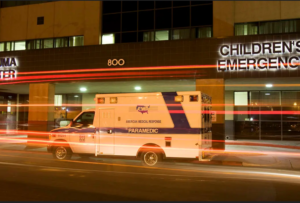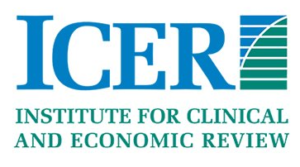- Misdiagnoses in EDs lead to 250K deaths a year: study (fiercehealthcare.com)Diagnostic Errors in the Emergency Department: A Systematic Review (effectivehealthcare.ahrq.gov)
The care given in emergency departments came under fire yesterday with the release of a government study saying that 250,000 Americans die every year due to misdiagnoses...The findings spurred an immediate response from the president of the American College of Emergency Physicians, who questions the study’s veracity and methodology...Christopher S. Kang, M.D., president of the ACEP, said in a statement that “in addition to making misleading, incomplete and erroneous conclusions from the literature reviewed, the report conveys a tone that inaccurately characterizes and unnecessarily disparages the practice of emergency medicine in the United States.”...The study, conducted by Johns Hopkins for the Agency for Healthcare Research and Quality, states that among 130 million ED visits in the U.S. per year, 7.4 million patients are misdiagnosed. In addition, 2.6 million suffer an adverse event, and about 370,000 suffer serious harm from diagnostic errors...READ MORE
- Study: Drug utilization costs health industry $93B a year, with patients bearing most of the cost (fiercehealthcare.com)Quantifying The Economic Burden Of Drug Utilization Management On Payers, Manufacturers, Physicians, And Patients (healthaffairs.org)
Drug utilization management such as prior authorization and stricter formularies cost the healthcare industry $93 billion annually, with patients bearing the largest share of the cost, a new study found...The study...found that intense use of drug utilization measures has led to patients spending $35.8 billion a year in cost-sharing...“All stakeholders in the U.S. pharmaceutical system would benefit from a de-escalation of utilization management, combining lower drug prices with lower barriers of patient access,”...READ MORE
- New CDC study: mRNA vaccines 90% effective (msn.com)Interim Estimates of Vaccine Effectiveness of BNT162b2 and mRNA-1273 COVID-19 Vaccines in Preventing SARS-CoV-2 Infection Among Health Care Personnel, First Responders, and Other Essential and Frontline Workers — Eight U.S. Locations, December 2020–March 2021 (cdc.gov)
In their clinical trials, the Pfizer and Moderna vaccines did okay, well enough for the FDA to grant emergency use authorization. But in a real-world study, where participants were all on the front lines fighting Covid, the vaccines proved 90% effective against the virus – not just the symptomatic disease. In the clinical studies, Pfizer and Moderna were testing against disease...According to the CDC-sponsored study released today, it didn’t matter which vaccine the participants received. What mattered was that both vaccines were designed using messenger RNA to repel the coronavirus. The results showed that the vaccines were even effective against asymptomatic virus...READ MORE
- NIH to start ‘flurry’ of large studies of potential Covid-19 treatments (statnews.com)
The National Institutes of Health is preparing to launch a “flurry” of large clinical trials to test new approaches to treating Covid-19, according to the agency’s director, hoping to expand what for now remains a limited arsenal of therapies to help people with the disease...Among the trials, he said: studies of antiviral monoclonal antibodies to treat Covid-19 in both hospitalized patients and patients who can be treated at home; studies of drugs to quell overreaction of the immune system that the agency has picked from dozens of approved treatments; and studies of blood thinners in very sick Covid-19 patients to prevent problems caused by blood clots. Those treatment studies will be on top of the work that the NIH is also doing on vaccines...READ MORE
- Video killed the in-person meeting star? Study finds video calls more effective in driving Rx (fiercepharma.com)
Should pharma reps keep wheeling their cases into doctors' offices? Maybe not. Video meetings are three times more effective than in-person interactions when it comes to driving new prescriptions...That’s according to a new report...which combed through data from 130 million quarterly field interactions across 80% of global biopharmas...It was an unexpected result: Video meetings, which have grown during the pandemic, work better than in-person meetings at getting new prescriptions filled. And digital leaders in the industry “are gaining an advantage using video calls up to three times a week,” the...report said...Why is video better? Partly because video meetings last longer...video calls tend to average 21 minutes, with reps using content in 85% of those meetings compared with 39% in person...READ MORE
- ICER, vocal critic of drug company pricing, turns scrutiny to insurers (biopharmadive.com)
The Institute for Clinical and Economic Review, a nonprofit and frequent critic of drugmakers for excessively high drug prices, now plans to assess how health insurance policies harm patient access to care...This follows research by the group that argued cost-sharing should not be structured to shift healthcare costs to patients when they have no medically appropriate lower-cost option...ICER's review will not, however, look at whether cost-sharing should be reduced for drugs on which payers receive large rebates or whether payers should be asked to demonstrate how their policies on drug access save overall healthcare costs...READ MORE
- Nearly 60% of Critical Care Pharmacists Report Burnout (pharmacypracticenews.com)
With many ICUs reaching or exceeding maximum capacity in spring 2020 due to the COVID-19 pandemic, it may not be a surprise that about 60% of critical care pharmacists reported feeling burned out in a recent national survey...In an electronic survey that queried critical care pharmacists about their institutions and number of activities performed in May and June 2020, 128 of 221 respondents (58%) reported feelings of burnout such as emotional exhaustion and depersonalization...READ MORE
- Despite pharma’s pandemic push, consumer trust in the industry still comes down to costs: study (fiercepharma.com)
A new study from Accenture shows a boomerang back to a familiar topic—drug costs...“We asked what would increase trust in the pharmaceutical industry, and for many people there’s a clear link between cost and trust,”...The top two answers specifically pointed to reduced medication costs (41%) and more transparency in pricing (39%) as measures that would make the respondents trust pharma companies more...An earlier Accenture report from May suggested the new economic reality for pharma meant companies would have to work at changing the cost narrative with customers. It suggests focusing on value and outcome-based pricing to build trust...READ MORE
- A third of COVID survivors suffer neurological or mental disorders: study (reuters.com)
One in three COVID-19 survivors in a study of more than 230,000 mostly American patients were diagnosed with a brain or psychiatric disorder within six months, suggesting the pandemic could lead to a wave of mental and neurological problems...Researchers who conducted the analysis said it was not clear how the virus was linked to psychiatric conditions such as anxiety and depression, but that these were the most common diagnoses...“Although the individual risks for most disorders are small, the effect across the whole population may be substantial,”...READ MORE
- Methamphetamine Overdose Deaths Rise Sharply Nationwide (pharmacypracticenews.com)Methamphetamine Overdose Deaths in the US by Sex and Race and Ethnicity (pay wall) (jamanetwork.com)
In the United States, methamphetamine overdose deaths surged from 2011 to 2018, according to a report from the National Institute on Drug Abuse...Rapid increases were seen across all racial and ethnic groups, but American Indians and Alaska Natives were most affected. Deaths involving methamphetamines more than quadrupled among non-Hispanic American Indians and Alaska Natives from 4.5 to 20.9 per 100,000 people, with sharp increases for both men and women in those groups...Methamphetamine use is linked to a range of serious health risks, including overdose deaths. Unlike for opioids, there are currently no FDA-approved medications for treating methamphetamine use disorder or reversing overdoses. However, behavioral therapies such as contingency management therapy can be effective in reducing harms associated with use of the drug, and a recent clinical trial reported significant therapeutic benefits with the combination of naltrexone and bupropion in patients with methamphetamine use disorder...READ MORE










